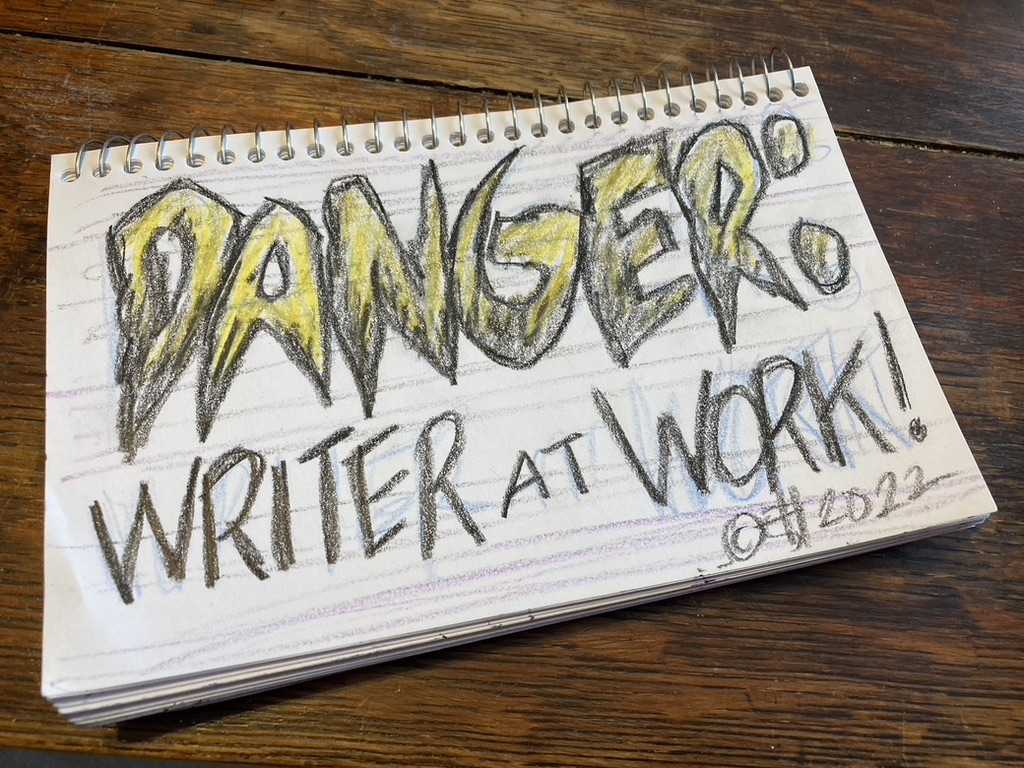by Ernest Hogan
I recently finished a novel and am thinking about what I’m going to do with it, how I’m going to market it, and to whom, which brings me to the uneasy subject of the hazards of writing while Chicano. Also, I need to send a tip of the Hogan sombrero to Daniel Cano for bringing up the subject here a while a back. It’s a subject I can’t seem to escape from.
Being tainted by the Billy the Kid/New Mexico Irish strain and having an Irish surname, it only confuses the issue. I outed myself as a Chicano in a letter to Asimov’s Science Fiction after Norman Spinrad, in his review of my novel Cortez on Jupiter, assumed that I was an Anglo. I still insist on calling myself a Chicano, because it provides a lot of information about me without having to go into a detailed bio. I don’t mind being published in Latinx anthologies, getting published is hard enough, and I can’t afford to get choosy. I’ve also been in an Afrofuturist anthology, no to mention all those white publications I’ve been in.
The problem is the word Chicano carries some complicated baggage. I once tried to explain it to a guy in Mexico, who ended up thinking I was from Chicago. East Coasters who only run across it via Hunter S. Thompson and cop shows get the idea that it refers to a cannibalistic tribe that cruises around in lowriders selling dope and looking for virgins to sacrifice. Chicanos also aren’t traditionally considered literate, let alone writers. My very existence tests the limits of a lot of imaginations.
Editors tend to like my work, but their bosses see “Chicano” as a limited, barrio market. It’s like going up to bat with two strikes against you. And then they still feel that you have to be careful when writing about “those people” because “they get offended.” Besides, they’re looking for bestsellers that will start franchises and be considered for TV and movie adaptation.
The pendejada is that I don't write for a small group of barrio intellectuals. I see my books as selling like crazy, shaking the world. I’ve got fans scattered all over the planet. Also in the last couple of years, I've had inquiries for the TV/film rights to all three of my novels and one of my short stories, so this may not be delusions of grandeur on my part.
So, what do I do with a novel about a Chicano science fiction writer who loses track of where his life ends and the sci-fi begins?
Should I call it science fiction emphasizing the extrapolation on the development of artificial intelligence and nanotechnology into the Singularity with an alien invasion and a Swiftian satire on 21st century U.S.A. for laughs? Or speculative fiction? In ten years working in a bookstore, and more than that in a library, no one has ever asked to see any speculative fiction–does anyone know what it is? Dare I try to pitch it as a mainstream bestseller? Can a Chicano do that?
Let’s give that a try: “It’s a modern day Don Quixote with elements of Hitchhiker’s Guide to the Galaxy and Fear and Loathing in Las Vegas. In the traditions of T.C. Boyle, Kurt Vonnegut, William S. Burroughs, Harlan Ellison, and Philip K. Dick.”
Uh-oh. I swerved into sci-fi territory again.
That’s a Chicano thing, though, always sauntering off where we aren’t supposed to be.
But then where am I supposed to be? Who says I can’t be a writer? And why not sci-fi? Ain’t the whole fonqui rasquache enchilada of La Cultura of the Latinoid continuum–my beat, home turf, barrio, whatever--full of weird stuff? And doesn’t that qualify as “write what you know?”
I guess the best thing to do is just do, be as Chicano as I can, go stark raving cucuy on their asses.
Stay tuned chamacos, it’s gonna be fun!
Ernest Hogan a Chicano writer, a writer who is Chicano, and a lot of other things.





5 comments:
Great summation pieces.
Ernest, I'm kind of going through the same thing, but now, even Latino publishers are choosing cautiously. Their biggest selling market seems to be young adults and children, with the hope of having school districts purchase the books. We, Chicano writers & artists, tend to think the word "Chicano" is somehow provocative to readers, as in Rudy Anaya's "A Chicano in the Alhambra," or other such titles. Since Chicanos can't seem to "culturally" pin down a meaning for the word, how much more confused will a larger, generic reading audience be? America seems to understand the Hyphenated American, whether Japanese, African, or even Irish. "Chicano," according to activists and scholars isn't Mexican American. So how do publishers market a book targeted to an ambiguous group of people? I have the same problem even when introducing a character designated "Chicano." I know what it means to me, but it might be confusing or misunderstood by publishers and readers. Perhaps, we think the word more precious than it really is. Who knows?
Publishing is definitely difficult. In my case, it is about language. I write about the chicano (Mexican, Latinx, etc.) experience in the U.S., but it is in SPANISH. It seems that publishers in the U.S. would not even read the proposals, even the ones that claim to focus on Latino Lit.
Publishing is definitely difficult. In my case, it is about language. I write about the chicano (Mexican, Latinx, etc.) experience in the U.S., but it is in SPANISH. It seems that publishers in the U.S. would not even read the proposals, even the ones that claim to focus on Latino Lit.
"I can't afford to be choosy" is not exactly complementary to publishers of Chicano/Latino content.
Post a Comment